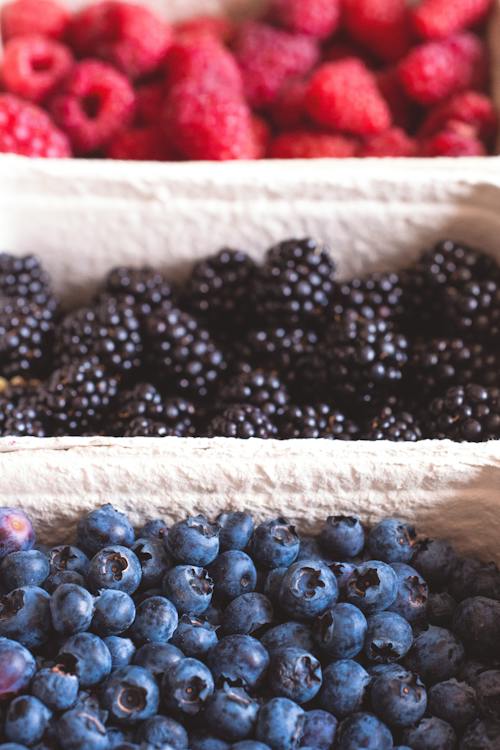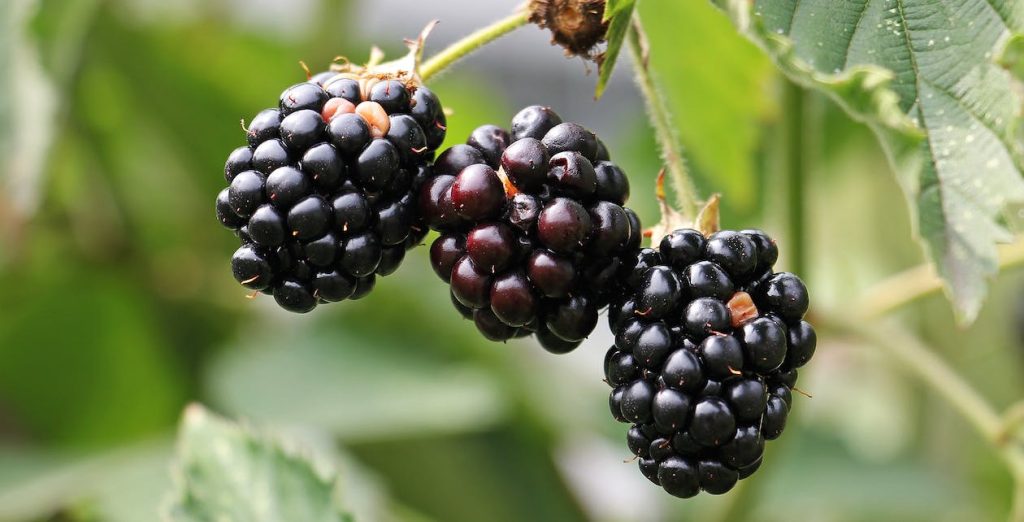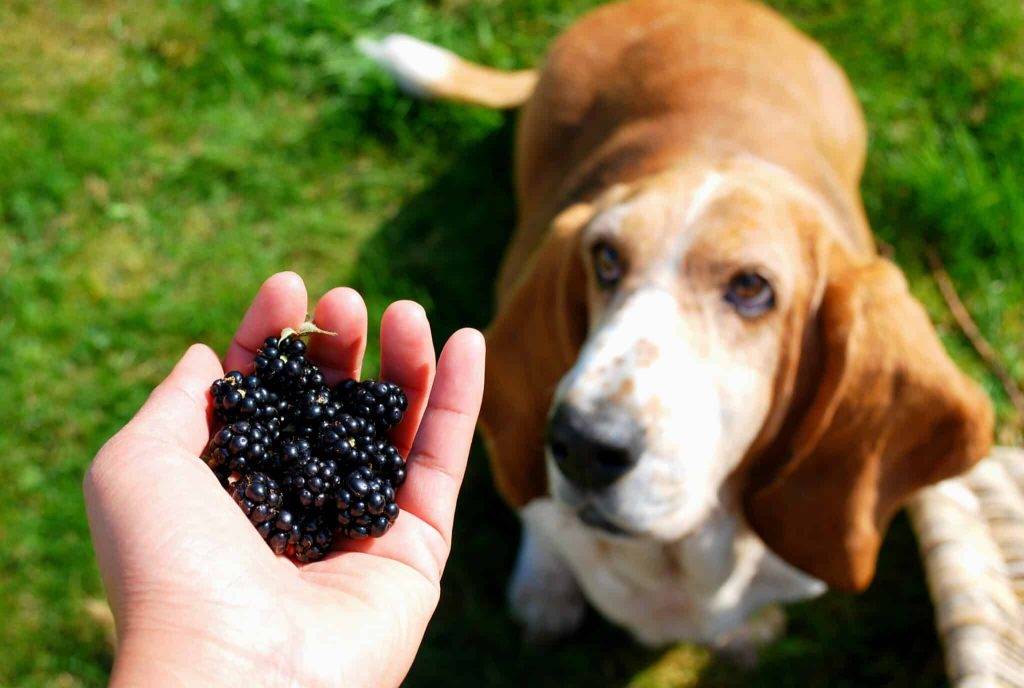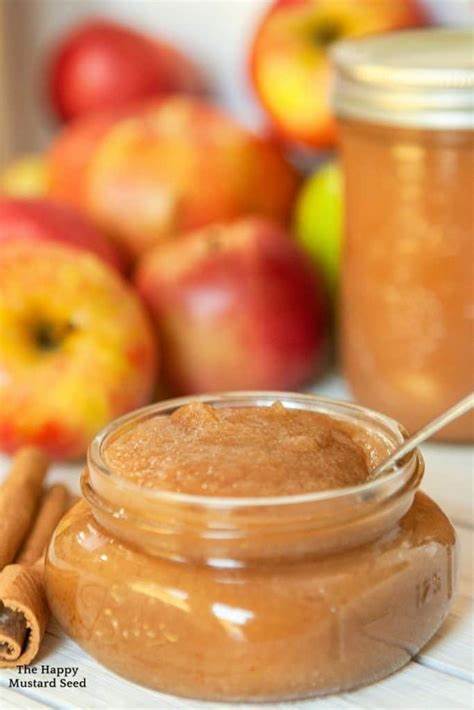Blackberries are a tasty summer treat that many dog owners want to share with their furry friends. But are blackberries good for dogs to eat? What are the benefits and potential risks?
Keep reading to learn everything you need to know about feeding blackberries to dogs. We’ll discuss proper serving sizes, nutritional value, and tips for safe consumption.

Are Blackberries Safe for Dogs to Eat?
The good news is that blackberries are non-toxic for dogs. So yes, dogs can safely eat blackberries as an occasional snack or meal supplement.
Blackberries provide lots of essential vitamins, minerals, and antioxidants. Offered in moderation, they can be a healthy addition to your dog’s diet.
However, there are a few things to be aware of before freely feeding blackberries to your pup:
- Sugar content: Blackberries contain natural sugars that can cause weight gain if consumed in excess.
- Gastrointestinal issues: Too many blackberries may cause loose stools or constipation due to high fiber.
- Choking hazard: Whole blackberries pose a major choking risk. They must be mashed or pureed first.
As long as you control portions and prepare them properly, blackberries are a nutritious treat. Let’s look closer at the nutritional value and benefits.

Blackberry Nutrition Facts for Dogs
So what exactly makes blackberries so nutritious for dogs? Here’s a breakdown of what makes them a superfood:
- Vitamin C: With 3x the vitamin C of oranges per serving, blackberries support immune health.
- Vitamin K: Important for blood clotting and bone health.
- Fiber: The seeds and skin provide both insoluble and soluble fiber to aid digestion.
- Antioxidants: High levels of anthocyanins and polyphenols fight free radicals and inflammation.
- Manganese: Supports bone development and metabolism.
- Vitamin E: Key for skin, coat, tissue, and red blood cell health.
Blackberries also contain small amounts of B vitamins, omega-3s, potassium, magnesium, and calcium. All of these nutrients provide health benefits for dogs.
Benefits of Blackberries for Dogs
Eating blackberries can benefit your dog in the following ways:
Boost Immunity
The abundance of vitamin C promotes a healthy immune system and fights disease and infection.
Improve Digestion
The fiber and water content in blackberries prevents constipation while also firming up loose stools. Fiber also encourages regular bowel movements.
Support Bone Health
Manganese, calcium, and vitamin K work together to build and maintain strong bones, preventing fractures and weakness.
Aid Brain Function
Antioxidants help prevent free radical damage and keep the brain, cognition, and central nervous system functioning optimally.
Encourage Healthy Skin and Coat
Vitamins E, C, and A give skin and fur important nutrients to stay supple and shiny.
As you can see, blackberries provide some excellent health benefits for dogs. Now let’s go over proper serving guidelines.

Are Blackberries Safe for Puppies?
Puppies under one year can also enjoy blackberries but in smaller portions than adult dogs. Wait until at least 3-4 months old to introduce blackberries to reduce digestive upset.
Cook the berries and mash thoroughly to prevent choking. Start with just a teaspoon mixed with their regular food and gradually increase up to 1-2 tablespoons max per day.
What’s the Best Way to Feed Blackberries to Dogs?
To safely feed blackberries to dogs, follow these tips:
- Always mash or puree whole blackberries, especially for small dogs. They pose a choking risk whole.
- Mix with their regular dog food or add as an occasional treat, not a main meal component.
- Limit portions to 1-2 tablespoons for small dogs; 1-4 tablespoons for medium or large breeds.
- Introduce slowly over a few days to check for allergies or intolerance.
- Avoid adding any sugar, cream, or other toppings. Only feed plain blackberries.
- Rinse thoroughly to remove any pesticides or chemicals from the skin.
- Supervise your dog when eating to prevent inhalation of pieces.
- Remove any moldy or spoiled berries, as they can cause illness.
Following these guidelines will allow your dog to enjoy blackberries safely and gain the associated health benefits.

Potential Risks of Blackberries for Dogs
While blackberries are non-toxic for dogs, it’s still possible to feed them improperly. Here are some risks to be aware of:
- Gastrointestinal upset: Too much fiber and natural sugars may cause loose stool, constipation, or vomiting.
- Weight gain: Blackberries are relatively high calorie, so overfeeding can lead to obesity.
- Inhalation risk: Dogs may gulp pieces too quickly or choke without proper preparation. Always mash berries first.
- Allergies: Some dogs may be allergic to blackberries. Go slowly when first introducing them.
- Pesticides: Non-organic blackberries may contain chemicals that cause illness. Thoroughly rinse or buy organic.
- Molds or spoilage: Eating rotten blackberries can cause food poisoning. Inspect thoroughly and refrigerate promptly.
Simply control portions, prepare properly, and supervise your dog when feeding blackberries to avoid any issues. Discontinue feeding them if any symptoms of intolerance appear.

Frequently Asked Questions
Still have questions about feeding blackberries to dogs? Here are answers to some common queries:
How much is too much blackberry for my dog?
For most average dogs, limit blackberry portions to 2-4 tablespoons maximum per day. Small dogs should get 1-2 tbsp max. Too much can cause diarrhea or other digestive upsets.
Are blackberry leaves and stems safe for dogs?
No, only feed the ripe blackberry fruits. The leaves, stems, and underripe berries contain compounds that can cause toxicity in dogs if ingested.
Can I give my pup blackberries every day?
It’s best to limit blackberries to an occasional treat 2-3 times per week. The natural sugars and fiber make daily feeding problematic. Vary treats to provide nutritional diversity.
Will blackberries help my older dog’s joint pain?
Possibly. The antioxidants and vitamins may help reduce inflammation. But glucosamine/chondroitin supplements specifically for joint health are a better option. Ask your vet for recommendations.
Are wild blackberries safer than store-bought?
Wild blackberries pose a higher risk of contamination from wildlife, pesticides, parasites, etc. Thorough washing is absolutely necessary if picking wild berries to feed dogs.
Blackberries make a delicious and healthy occasional treat for dogs when fed properly. Be sure to introduce them slowly and supervise snack time. Discontinue use if any signs of intolerance appear. Let us know if you have any other berry-related questions!



